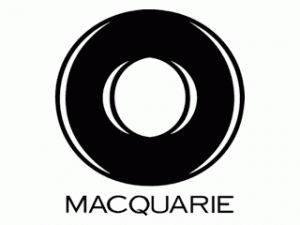 After hearing some of the rumors about the Macquarie deal, I’ve been watching skeptically to see how much of it is wishful thinking and rumor-mongering. I’m now seeing that almost all of it is completely true. Macquarie had a representative answering questions at the most recent Brigham City city council meeting (skip to 43:30) and he confirmed a lot of what I had previously reported.
After hearing some of the rumors about the Macquarie deal, I’ve been watching skeptically to see how much of it is wishful thinking and rumor-mongering. I’m now seeing that almost all of it is completely true. Macquarie had a representative answering questions at the most recent Brigham City city council meeting (skip to 43:30) and he confirmed a lot of what I had previously reported.
Macquarie wants a 30-year contract with the cities to expand and operate the network. There would be no transfer of ownership of the network and the cities would retain the title to all of the assets. Their purpose in doing this is to secure low-risk (in their words, “boring, stable”) investments with a moderate rate of return for pension funds and life insurance pools. Their view is that because they don’t have the typically myopic view of most of the telecom market that requires a very fast, very high return on investment, they can approach differently and see the long-term effects. Macquarie is committed to building out every home (165K of them by their count) to a “service ready” state. I assume that means including all portals and needed cabling so that getting service is as easy as a phone call.
In exchange for the contract, Macquarie would assess a per-address fee to the cities. While they recommend a utility fee with waivers for the financially indigent, the cities are given full latitude to determine how this fee would be collected. They can’t quote specific numbers yet since they’ve just started to receive proposals in response to their RFQ, but I’ve heard numbers between $15 and $25 per month. Macquarie would commit to providing the connection to every address and service providers would offer a free “basic” level of service comparable to high-end DSL or low-end cable. The service providers would not be charged a fee for access to these customers and would only incur the customer service costs. Word is that they view this arrangement favorably since this gives them a way to market 100Mbps and 1Gbps services to those customers.
Cities are actually going to get a pretty sweet deal on those upgraded customers too. Macquarie wants to make sure the cities keep almost all of the funds paid by the upgrading customers. These funds will help pay off the debt service and could be used to reduce the utility fees. I personally also like that the cost of UTOPIA will become a transparent thing. Brigham City is planning to leverage this universal buildout to switch to smart meters that will pay for themselves within 2 years and greatly reduce the operating costs of the city electrical utility.
Macquarie is doing a good job at keeping their ear to the ground locally. They were on top of Sen. Valentine’s attempts to amend SB190 from the floor and worked vigorously behind the scenes on both that and the original ill-conceived bill. They’re keenly aware of the perception of UTOPIA being forced on city residents and want to focus on showcasing the benefits of the network. They also took a moment to slam some of the woefully uninformed comments from the previous meeting by pointing out that they’ve been doing business in the US for two decades and have over 5,000 employees here.
The devil is always in the details, but so far this looks like a very solid proposal that’s win-win. The cities get world-class infrastructure and money to pay the bonds, the citizens get at least a free baseline of Internet service (with cheap upgrade options), and the rest of the state gets the potential to get gigabit everywhere else too. Macquarie also gets their toehold on what they believe to be a great long-term investment for low-risk portfolios, potentially spurring other companies into an overbuilding gold rush. I have yet to see anything giving me pause.
PS As a bonus, note that Ruth Jensen spends most of the council meeting continuing to concern troll on both smart meters and the free tier of service. She also comically states that DSL and cable are “good enough”, parrotting the standby line of the “you’ll take it and like it” incumbents. Jensen also goes so far as to insinuate that people actually LOVE their existing options, apparently unaware of how poorly they have been performing in customer satisfaction rankings for well over a decade. Her near-automatic gainsay reminds me way too much of the Monty Python argument clinic sketch.








